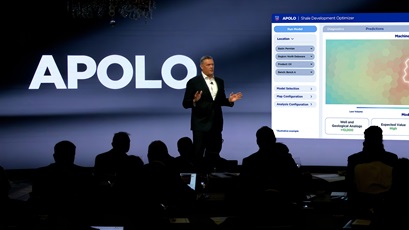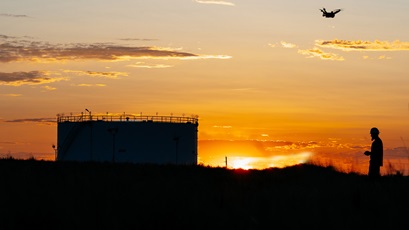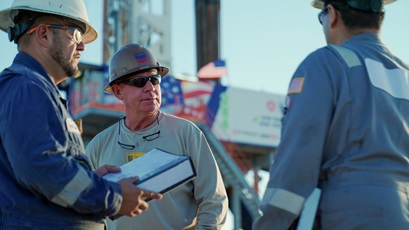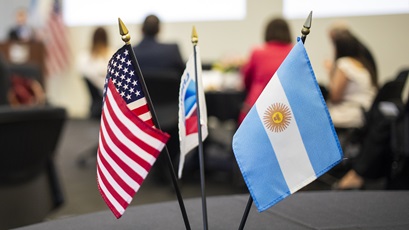our operations
methane detection efforts are out of this world
2 min read | may 08, 2023
Blair Blackwell (left) and Emily Jobson (right) work together to detect methane emissions in Kazakhstan.
Chevron colleagues Blair Blackwell and Emily Jobson have a lot in common, ranging from outdoor sports and travel to environmental advocacy. Both are lower carbon advisors at Chevron.
It’s that passion for protecting the environment that brought them shoulder-to-shoulder on Earth and their careers to the outer layers of the atmosphere.
Blackwell most recently lived in Salt Lake City, Utah, and Jobson is from Alberta, Canada. And while they once were separated by a national border, they came together halfway around the world to help protect the planet by mitigating emissions within Chevron’s Kazakhstan operations.
Among the tools they use there to monitor methane emissions are satellites, which spot super emitters from the sky.
zooming in
Methane detection technologies have advanced notably within the past decade. Years ago, most technology was handheld. Today, it’s literally out of reach. Using drones, satellites, planes and fixed sensors, we are evolving how to detect these greenhouse gas emissions.
As methane management plans in Kazakhstan take shape, Chevron saw the opportunity to leverage satellites with detection capabilities to determine if they could detect emissions from our Tengizchevroil (TCO) joint venture facilities. Our attempts were successful, and now methane emissions detection via satellite is one of the key tools in TCO’s emerging methane management toolbox.
blair blackwell
lower carbon advisor with Chevron's Eurasia business unit
lower carbon leaders
As an environmental advocate working for an oil and gas company, Jobson finds it exciting to be part of Kazakhstan’s lower carbon future. She and Blackwell participate in the Kazakhstan Foreign Investors Council Association's Lower Carbon Working Group. It provides the governments with support and feedback as it develops its own methane management policy.
“Kazakhstan has incredible potential for being on the leading edge in Central Asia as part of the global energy transition,” said Jobson, TCO’s lower carbon advisor. “I’m excited to play a role in helping shape what that looks like for the country going forward.”
Their enthusiasm for this new frontier of methane detection is yet another shared passion. “This is one of the biggest challenges of our time,” Blackwell said. “Being able to be a part of the energy future of Kazakhstan, even a small part, is really exciting. It’s a complex and challenging road ahead, but it’s important work.”
topics covered
related content
-

 how APOLO helps chevron pinpoint prime drilling locations
how APOLO helps chevron pinpoint prime drilling locationsour operationsnovember 12, 2025
-

 robotics supports more efficient workplace
robotics supports more efficient workplaceour operationsnovember 10, 2025
-

 the people who power the US energy advantage
the people who power the US energy advantageour operationsnovember 06, 2025
-

 a statement from chevron CEO mike wirth on Argentina
a statement from chevron CEO mike wirth on Argentinaour operationsseptember 24, 2025
chevron email updates
Subscribe to our newsletter to receive news and updates.



